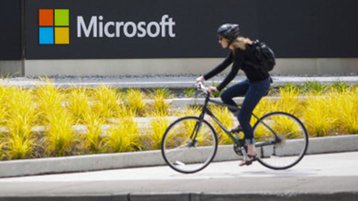Energy Impact Partners LP (EIP), a venture capital firm backed by Microsoft and Duke Energy, has raised $200 million to fund clean energy and sustainable manufacturing technology.
The Deep Decarbonization Frontier Fund will provide capital for high-risk ventures aiming to provide green energy or low-carbon industrial processes. It will be funded by utilities and oil and gas companies and plans to pair up its successes with these sponsors when their technology is ready to go into production, according to Bloomberg.
Even before its formal announcement, the fund has backed a battery company, a nuclear fusion startup, and companies making low-carbon fertilizer and cement.
Transition time
Green startups are a high risk, which have been shunned by investors in the past. EIP argues that heavy emitting companies involved in fossil fuel and utilities have a greater incentive to back these prospects, as they need ways to transition to lower carbon. The fund, led by Shayle Kann, hopes to raise another $150 million this year.
The fund's first proteges include Form Energy, a company planning to make large-scale energy storage systems for grid balancing, based around iron-air batteries, a novel battery system that uses a reversible version of the oxidation reaction found in metal corrosion. The technology is potentially good for grid storage, and has low cost and environmental impact as it is based around an abundant material - rust.
Another beneficiary is Zap Energy, a startup planning to commercialize fusion energy, using an alternative method known as "sheared flows" to stabilize the hot ionized gas plasma, instead of magnetic fields.
“This is a multitrillion-dollar transition,” Kann told Bloomberg. “To the victor go the spoils, and the spoils will be huge.”
Two years ago, in January 2020, Microsoft announced it would invest $1 billion over the next four years, at the same time it announced it would be carbon negative by 2030. The first investment Microsoft made from that fund, was to EIP.
Announcing the $1 billion fund back in 2020, Microsoft president Brad Smith said: "We understand that this is just a fraction of the investment needed, but our hope is that it spurs more governments and companies to invest in new ways as well."
More in Sustainability
-

-

Sponsored Sustainable solutions that pack a punch
-


